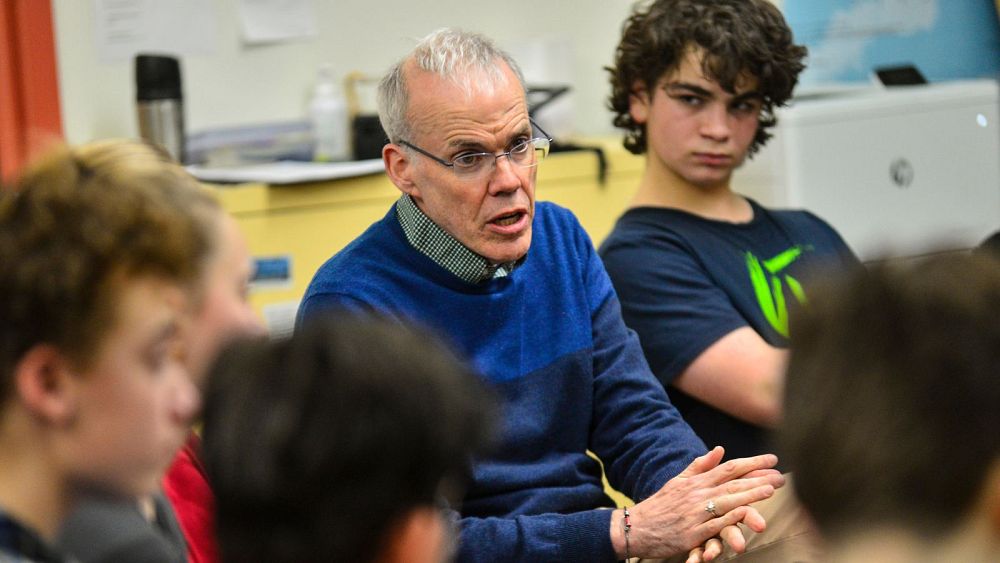
There’s no age limit on taking action to prevent runaway climate change. From Germany’s ‘Letzte (Last) Generation’, to pushchair-wielding protesters in the UK, activists at all stages of life have skin in the game.
When older people discuss their motivation, they often foreground their grandchildren. “I honestly wouldn’t be able to hold him and love him authentically if I wasn’t doing what I’m doing,” Michelle, a Just Stop Oil protester who spent time behind bars last year, said of her three-year-old grandson Oscar.
For others, the demands of climate justice, generational and geographic, are reason enough.
Though the ‘elders’ of Extinction Rebellion and other campaign groups have been making a heroic stand for years – acknowledging they have less to lose by getting arrested – climate activism still tends to have a fresh-faced look.
This could change tomorrow (21 March), when thousands of older Americans are set to blockade banks across the USA.
‘Third Act’ – founded by veteran climate campaigner Bill McKibben – has more than 50,000 members, and they’re stepping out for what’s being described as the first set of mass climate demonstrations by older Americans.
Picture painted rocking chairs outside the entrances to some of the US’s largest banks, as well as the usual colourful array of protest art.
Why is Third Act protesting at banks?
Financial institutions are a frequent target of climate protests – and for good reason.
As today’s IPCC report makes clear, investors, central banks and financial regulators have a crucial role to play in defunding fossil fuel projects, and financing solutions.
But many banks are backtracking on their net zero targets. McKibben says he hopes tomorrow’s protests will highlight the link between “cash in the bank and carbon in the air”, by targeting the ‘big four’: Chase, Citibank, Wells Fargo and Bank of America.
In May last year, it was revealed that these banking bastions have collectively provided $1.1tn (more than €1 trillion) in financing to fossil fuels since the 2015 Paris climate agreement, making them the world’s leading banking financiers of oil and gas projects.
And there’s a particular reason why older Americans are a persuasive demographic here. “Experienced Americans” are the fastest-growing part of the population: 10,000 people a day pass the 60-year mark, Third Act states on its website.
“Washington and Wall Street have to listen when we speak, because we vote and because we have a large – maybe an overlarge – share of the country’s assets.”
As McKibben told the UK’s Guardian newspaper, “Older people have got money and structural power coming out of our ears.”
What is Third Act hoping to achieve?

The silver-haired activists will be blockading banks at more than 90 locations across the States, including Washington DC.
This national day of action builds on the group’s advocacy over the last year, urging people to take a ‘Banking on Our Future’ pledge by closing their accounts, cutting up their credit cards and boycotting the big four if they don’t divest from fossil fuels.
They recently held a test-run protest in New York City, where participants marched under a banner declaring “fossils against fossil fuels”.
More credit card cutting is expected tomorrow, but Third Act says the day is for everyone – not just card holders or those over a certain age.
McKibben (62) also highlights the wealth of experience his age group holds, pointing out that people in their 70s and 80s were young during the cultural upheavals of the 1960s.
“The people sitting on rocking chairs on Tuesday were marching on the first Earth Day in 1970,” he told the Guardian. “We probably all believed that the government would address these concerns – we may have gotten a little complacent.”
